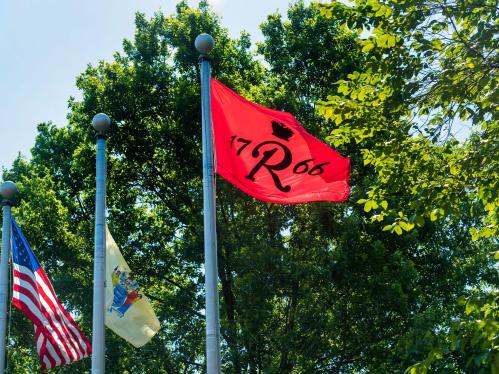
NAGPRA: Duty of Care and Respectful Return at Rutgers University
As the State University of New Jersey, Rutgers recognizes its obligation to fulfill not only the letter but the solemn spirit of the Native American Graves Protection and Repatriation Act, commonly referred to as “NAGPRA,” and its attendant federal regulations. Passed by an Act of the 101st Congress in 1990, NAGPRA requires all organizations or institutions receiving federal funding to ensure that any Native American, Native Hawaiian, or Alaska Native human remains, associated or unassociated funerary objects, sacred objects, and/or objects of cultural patrimony be repatriated and returned to their appropriate lineal descendants, native tribe or Native Hawaiian organization.
The federal NAGPRA website has more information about the law and its legislative history.
Enabling an Honorable Repatriation
At Rutgers, NAGPRA-related efforts are overseen by four NAGPRA Representatives, each of whom acts as the primary point of contact and spokesperson for our four Chancellor-led campuses: Rutgers–Camden, Rutgers–Newark, Rutgers–New Brunswick, and Rutgers Health. Campus NAGPRA Representatives consult with University Academic Affairs and one another on NAGPRA-related obligations as they pertain to the university and consult, as applicable, with its Native American, Native Hawaiian, and Alaska Native partners.
Rutgers Campus NAGPRA Representatives
Rutgers–Camden
-
Kimberlee Moran, Director of Forensics & Associate Teaching Professor, Department of Sociology, Anthropology, and Criminal Justice, Rutgers University–Camden
Rutgers–Newark
-
John “Jack” Kuo Wei Tchen, Director of the Clement A. Price Institute on Ethnicity, Culture, and the Modern Experience; Professor, Federated Department of History, Rutgers University–Newark and NJIT
-
Saundra Tomlinson-Clarke, Provost & Executive Vice Chancellor for Academic Affairs; Professor, Department of Educational Psychology, Graduate School of Education, Rutgers University–New Brunswick
Rutgers Health
-
TBD

Learn More About NAGPRA
Discover the purpose and history of NAGPRA and access helpful training resources, guides, and frequently asked questions.